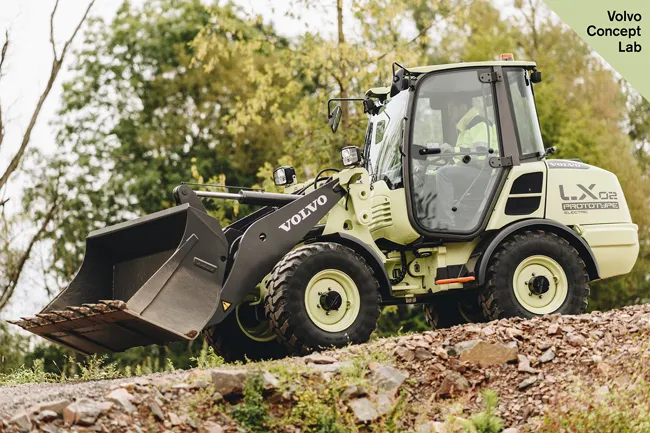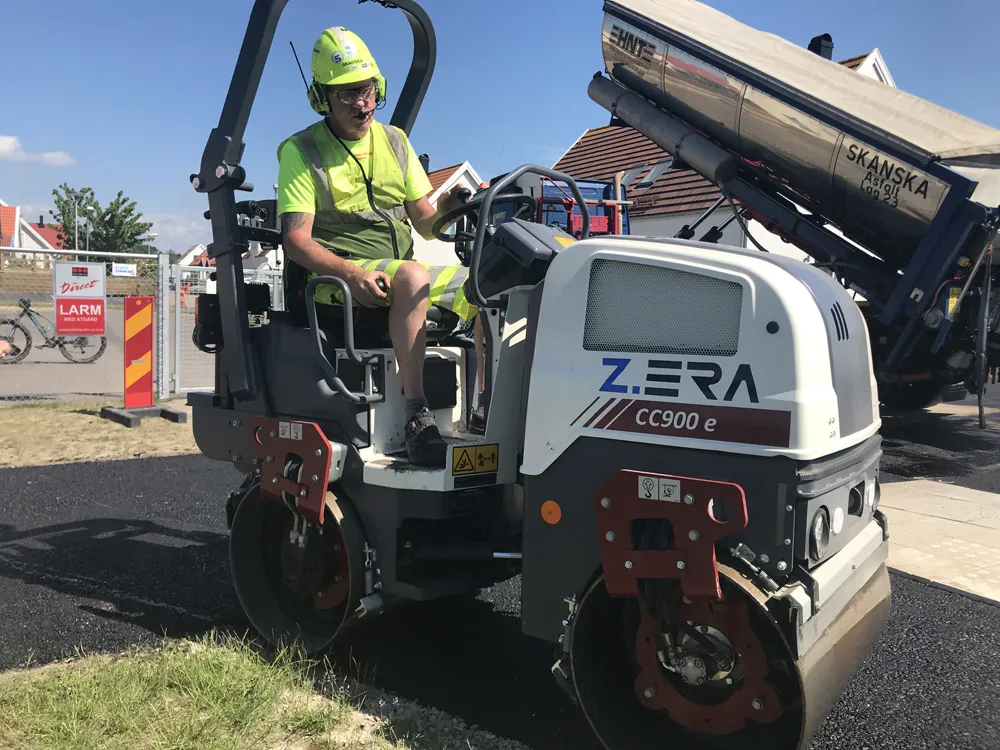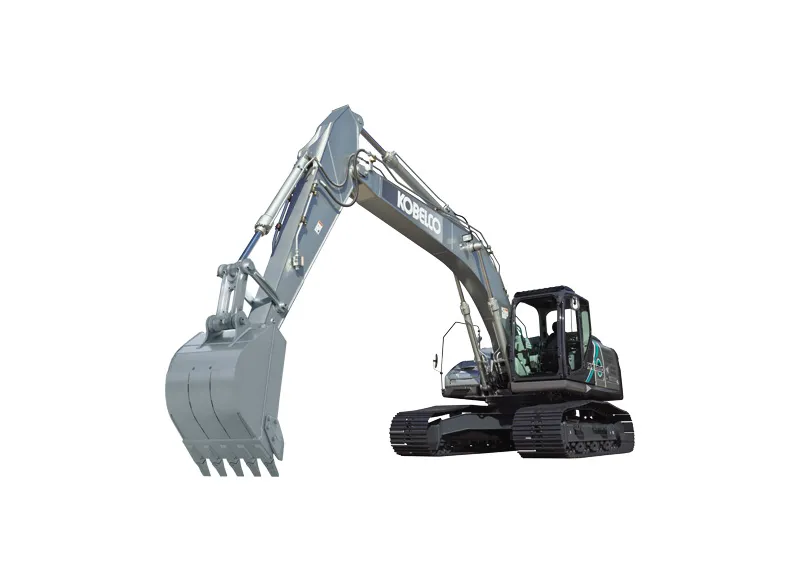
The firm recently demonstrated its LX2 electric compact wheel loader at the Volvo Group Innovation Summit in Berlin. The prototype machine delivers zero emissions, significantly lower noise levels, improved efficiency and reduced operational costs. At the summit, Volvo CE also demonstrated its EX2 fully-electric compact excavator prototype and presented the company’s electric site research project.
The electric compact wheel loader prototype delivers zero emissions, significantly lower noise levels, improved efficiency and reduced running costs. The LX2 is a second-generation prototype and forms part of a research project so it is not commercially available. Its internal combustion engine has been replaced with electric motors and a lithium ion battery. The battery is able to operate the machine for eight hours in its most common applications, such as light infrastructure construction. The LX2 has two dedicated electric motors, one for the drivetrain and one for the hydraulics. According to Volvo CE, decoupling the subsystems has led to higher efficiency in both the systems and the entire machine.
“The LX2 is a revolutionary zero-emissions prototype that offers improved efficiency and lower operational costs, without compromising on machine performance,” said Ulrich Faß, Emerging Technologies Manager. “It incorporates the latest advanced chemistry battery technology. As it’s electric, no particulate matter, nitrogen oxide or carbon dioxide are released into the environment. This, together with the fact that it has extremely low noise levels, makes it ideal for use in cities and densely populated areas.”
At the summit, Volvo CE also presented its electric site research project which aims to transform the quarry and aggregates industry by reducing carbon emissions by up to 95% and total cost of ownership by up to 25%. Volvo CE and its customer
“The electrification of construction equipment will produce cleaner, quieter and more efficient machines – this represents the future of our industry,” said Patrik Lundblad, senior vice president of Technology at Volvo CE. “We are currently in a period of exponential technology growth and are at the start of a paradigm shift. At Volvo CE we are developing technologies connected to electromobility, automation and connectivity that will benefit our customers and the environment by contributing to increased machine performance, productivity, efficiency, safety and sustainability. Our future products and services will play an important part in building a sustainable society.”








